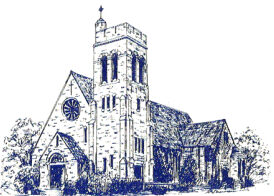Jesus meets Aristotle
Dear OLOA Parishioners and Friends,
Friends, if you haven’t made any plans for Thursday evening, you are very welcome to join our Lecture over pasta dinner on Thursday, October 24, in our Parish Hall. I would like to speak with you about a proposition that famous French philosopher Gabriel Marcel introduces on the pages of his now famous Homo Viator (Pilgrim Man). Proposing to us a New Phenomenology and Metaphysics of Hope Gabriel Marcel examines some of the most important works of Existentialist Philosophy and as a result, his work focuses on the modern individual’s struggle in a technologically dehumanizing society and his philosophy helps us to navigate through it and keep not only our sanity and humanity intact, but also Marcel’s propositions help us with some practical ideas of how to protect one’s subjectivity from annihilation by modern materialism and a technologically driven society. That is one of the main reasons I like to study the development of Existentialism, and the universal struggle with the question: Does existence precedes essence? If you are into such form of critical thinking, and would like to find out
more about Existentialism, come and join us. Dinner will be served at 6:30 PM and lecture and discussion will follow at 7 PM. BYOB, any beverage of your choice. RSVP is required NO later than Friday, 10/18 by
calling the office or email [email protected] with your name and the number of people attending. A free will offering will be taking up to help defray the cost of the dinner. Thank you for your generosity.
Fr. Mirek
